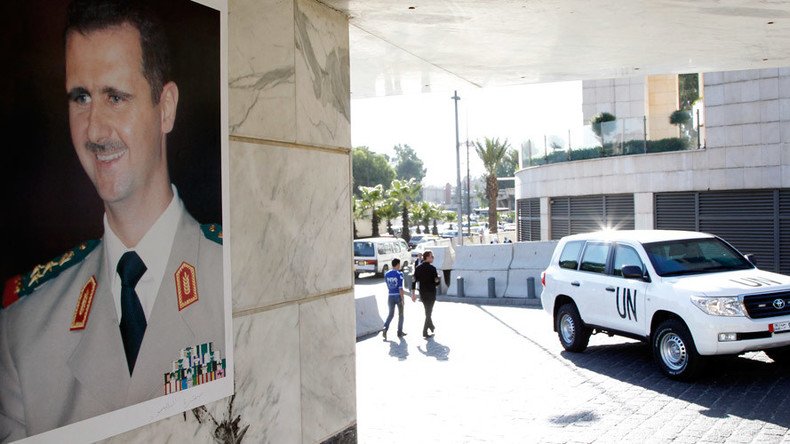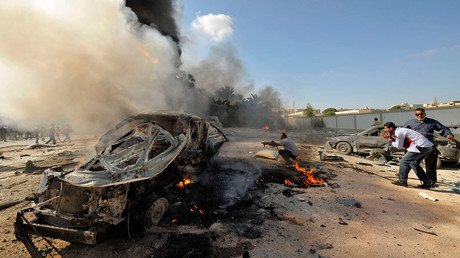UN watchdog finds evidence of sarin use while investigating Syrian govt tip

A UN fact-finding mission in Syria has found evidence some people were exposed to the toxic sarin gas or a similar compound after it investigated one of 11 cases of suspected chemical weapons’ use reported by the government.
The findings of the Organization for the Prohibition of Chemical Weapons (OPCW) were reported by UN Secretary General Ban Ki-moon to the Security Council in a letter dated December 29. The monthly OPCW report was released Monday.
"In one instance, analysis of some blood samples indicates that individuals were at some point exposed to sarin or a sarin-like substance," OPCW chief Ahmet Uzumcu said in the document detailing the evidence discovered.
"Further investigation would be necessary to determine when or under what circumstances such exposure might have occurred," he added.
The organization didn't specify when or where the alleged sarin exposure happened.
Moscow believes the terrorist group Islamic State (IS, formerly ISIS/ISIL) or some other radical group is responsible for the use of chemical weapons in Syria, Mikhail Ulyanov, who heads the non-proliferation department in the Russian Foreign Ministry, told RIA Novosti.
BREAKING: Turkish MP faces treason charges after interview to RT https://t.co/YLR2JYpfII#ErenErdemYalnızDeğildirpic.twitter.com/aHaSRt5i8O
— RT (@RT_com) December 16, 2015“Since the facts point in one direction, we believe the possibility that militants use chemical weapons as very high. Especially since the Syrian government reported relevant information to the UN Security Council and the OPCW about a dozen times,” he said.
The diplomat added that cases of alleged chemical proliferation must be thoroughly investigated, such as the recent report by a Turkish MP, which alleged the components needed to manufacture sarin had been handed over by the Turkish government to a militant group in Syria.
The OPCW was invited to Syria after the country decided to declare and destroy its chemical weapons arsenal in September 2013, as it was facing a threat of military action by Washington. The US and its allies accused Damascus of using chemical weapons in an attack in the Ghouta suburb of the capital.
Moscow helped negotiate a deal for disarmament, which resulted in Syria handing over all its declared chemical agents and manufacturing equipment by June 2014. The OPCW, the organization tasked with supervising the international ban on chemical weapons, received a Nobel Peace Prize in 2013.
The Syrian chemical weapons program is a legacy of the defeat in the 1967 Arab-Israeli war, with the arsenal meant to serve as a strategic deterrent in the standoff with Israel. Until 2013, Damascus neither confirmed nor denied having chemical weapons, much as Israel continues to do with its suspected nuclear arsenal.
In July 2012, as it was standing accused of using chemical weapons against armed rebels and civilians, Damascus for the first time acknowledged having such an arsenal and declared that it would use it only to defend itself from a foreign invasion.
The Syrian government and various groups opposing it have repeatedly accused each other of using chemical weapons both before and after the disarmament. The terrorist groups Islamic State and Al-Nusra Front, as well as the Kurdish militia YPG, have been accused of chemical attacks at various points.
The source of toxic agents remains unclear in many cases. While critics of Damascus suspect that it may have withheld some of its store, other reports pointed to pillaged Libyan arsenals or foreign sponsors of hardcore Islamists as potential culprits.













